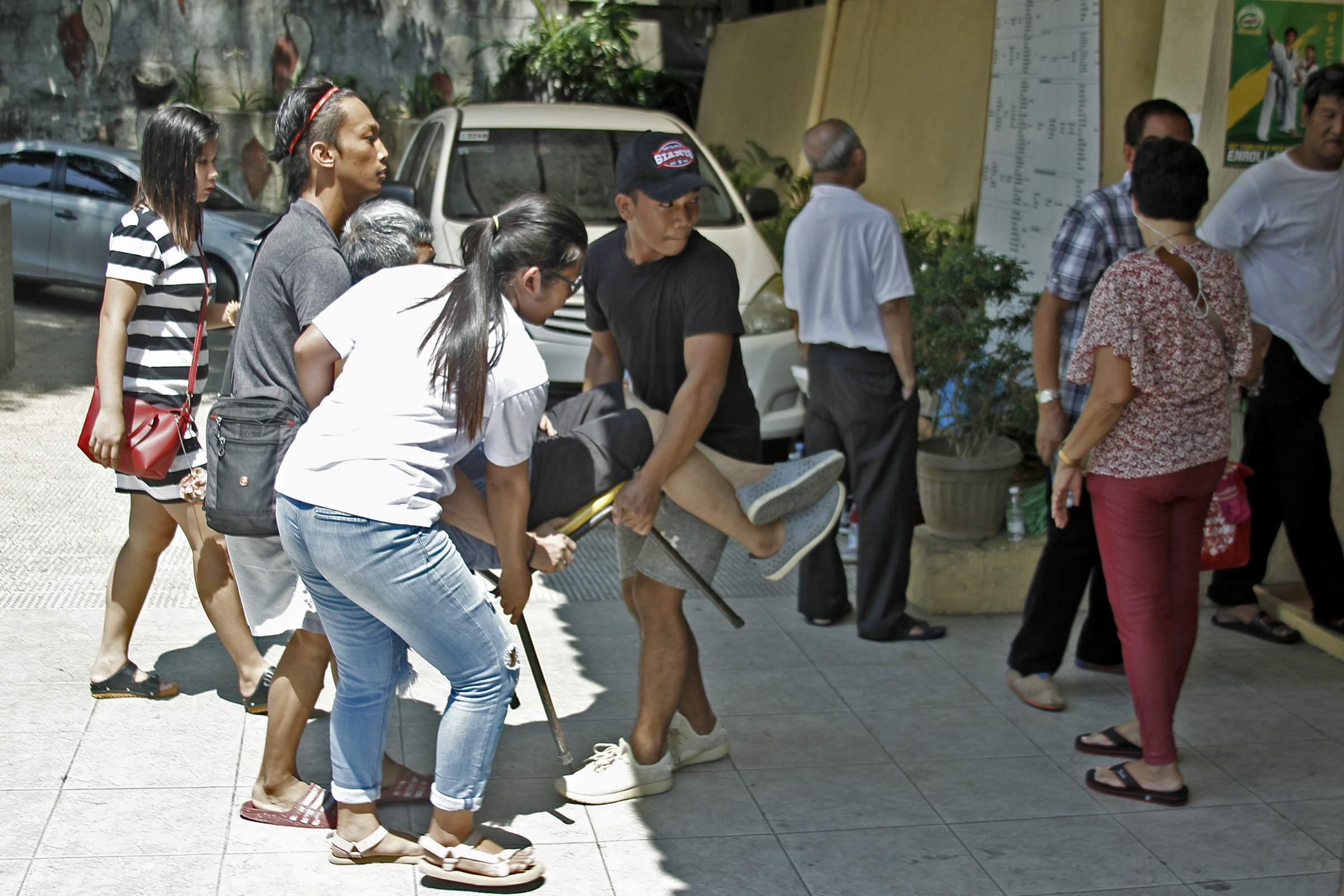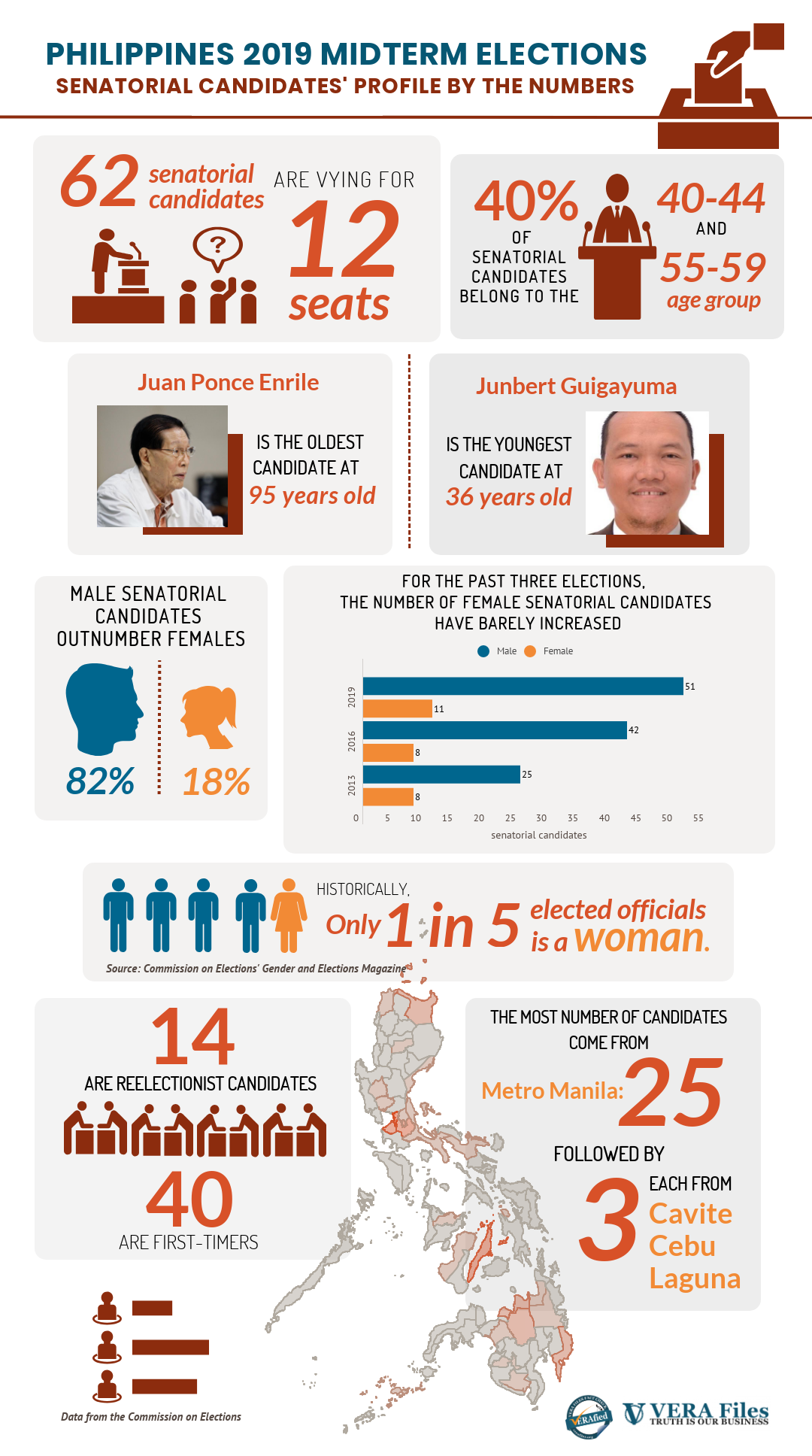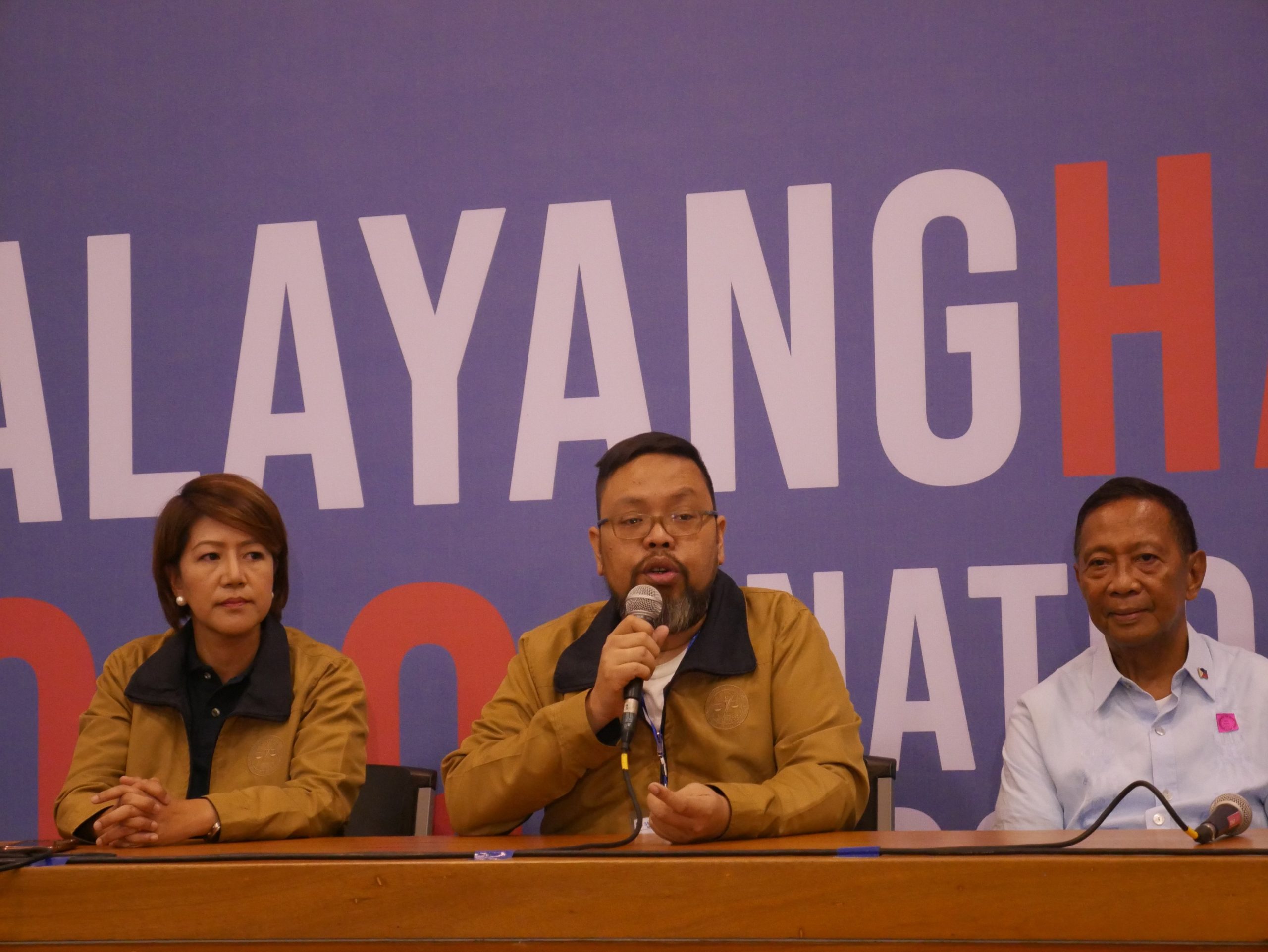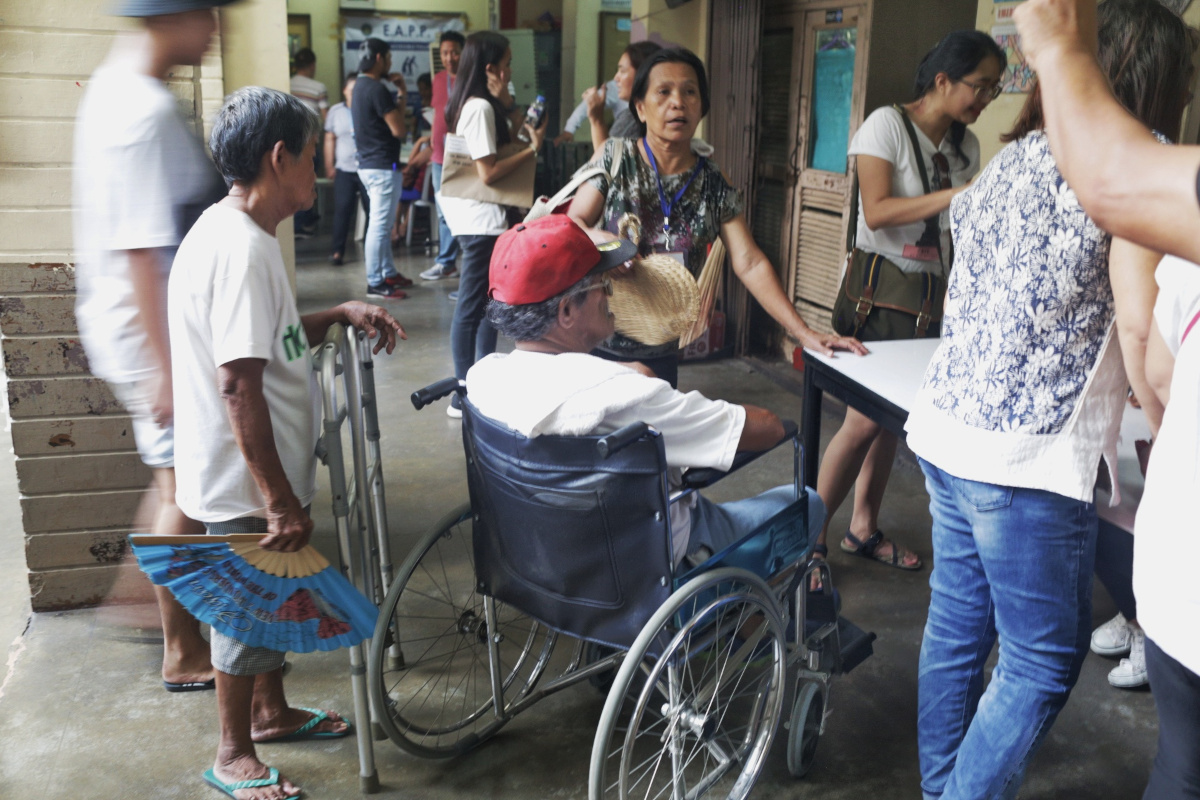
(Editor’s note: The story has been updated to correct Olabe’s first name and the number of emergency accessible polling places from 864 to 861. This is according to Upholding Life and Nature (ULAN), which is part of the Commission on Elections’ EAPP committee. We apologize for the mistake.)
Twenty-four-year-old Mary Ann Crisostomo is eight months pregnant. On May 13, she climbed the stairs to get to her precinct on the second floor of Batasan Hills National High School in Quezon City because she was unaware of the emergency accessible polling place (EAPP) located on the ground floor.
“I was not told about it. I didn’t know.”
At Fort Bonifacio High School in Makati City, Hena Olabe, 72, struggled to reach the third floor so she could vote. The 72-year-old stroke survivor, who uses a walking stick, came after the EAPP had closed.
For the second time in a row, EAPPs intended to make voting more inclusive have failed people with disabilities (PWDs), senior citizens and heavily pregnant women.
Misinformation, unclear instructions and long waiting hours hounded the Commission on Elections’ (Comelec) implementation of EAPPs, which are makeshift tents located near the entrance of voting centers set up to assist vulnerable voters.
The Comelec has established 861 EAPPs nationwide. Under the poll body’s rules, they should ideally be on the ground floor of multi-story voting centers and in single-story voting places that can only accessed by steep inclines.
In Metro Manila alone, VERA Files documented cases of voters with disabilities who had to take several flights of stairs in order to cast their ballot because they were not made aware that EAPPs close four hours before the 6 p.m. official end of voting.
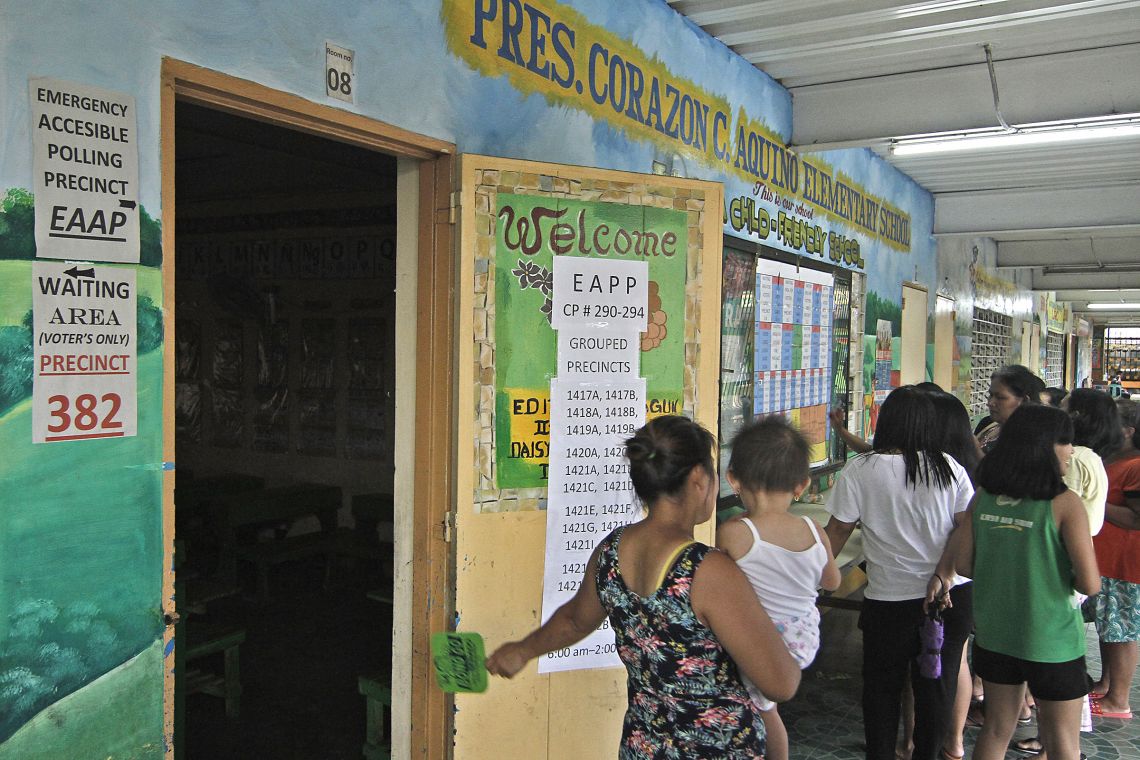
An emergency accessible polling place is set up on the ground floor of President Corazon Aquino Elementary School in Quezon City for PWDs, senior citizens and heavily pregnant women. (Photo by Vincent Go)
In some cases, inconsistent and unclear EAPP voting procedures from volunteers also sowed confusion among voters.
“My feet are aching. I can no longer walk properly,” 75-year-old Pining Gacgacao complained and questioned why she has to take the stairs to vote when there is an EAPP on the ground floor.
Kenneth Donilo, a support staff, said the closing of EAPPs at 2 p.m. is governed by the Comelec’s instructions.
Also at Batasan Hills National High School, Felipe Tabaranza, 70, and his wife, Maria, 65, had to climb up to the second floor despite an available EAPP because they were asked by a volunteer if they were willing to vote upstairs.
“It’s up to the senior (citizens) if they are willing to go up the stairs or not,” Misma Del Rosario, one of the election supervising officials, said in Filipino.
National Council on Disability Affairs Executive Director Carmen Reyes-Zubiaga, who is very much familiar with voting guidelines, was not spared.
She shared her experience on her Facebook page, calling the very act of voting “buwis buhay” or death-defying. She said the entrance gate of the school where she was to vote was closed and voters, including those using wheelchairs (like herself), had to go through the backdoor.
“It’s a good thing my neighbors are ever-ready to help. They carried me and my wheelchair,” Zubiaga wrote, blasting authorities in her district for their ignorance of the rights of voters with disabilities.
Like in 2013 and 2016, NCDA executive director Carmen Reyes-Zubiaga says she had to be carried to the higher floors of her voting center in order to cast her ballot.
This account of Zubiaga, who chairs the lead government agency that takes charge of disability issues in the country, is no different from her experience in 2013 and 2016. (See Despite EAPPs, voting not any easier for many PWDs and senior citizens)
But EAPPs were a big help to some. Chrisly Superable, five months pregnant, was one of them. She described the voting process as smooth, having spent less than half an hour in the EAPP in a school in Quezon City.
“Priority is given to pregnant women and senior citizens, that’s why there is a designated building for them,” she said in Filipino.
Asked for an assessment of how the EAPPs worked, Comelec Director for Education and Information Frances Arabe said they have yet to compile statistics and reports from the field.
“We have reports that some are happy with the EAPP. We also have reports that they are not happy and they want improvement in the system,” she said.
She acknowledged there is still a lot to be done to make the system smooth, including vulnerable voters actually registering or signifying their desire to use the EAPPs.
“In some areas, only a few availed and they were happy about it. They enjoyed the benefits of having someone get their ballots for them,” Arable said. But many did not avail of the facility, she added, because they wanted to see the voting machines and personally feed their ballots.
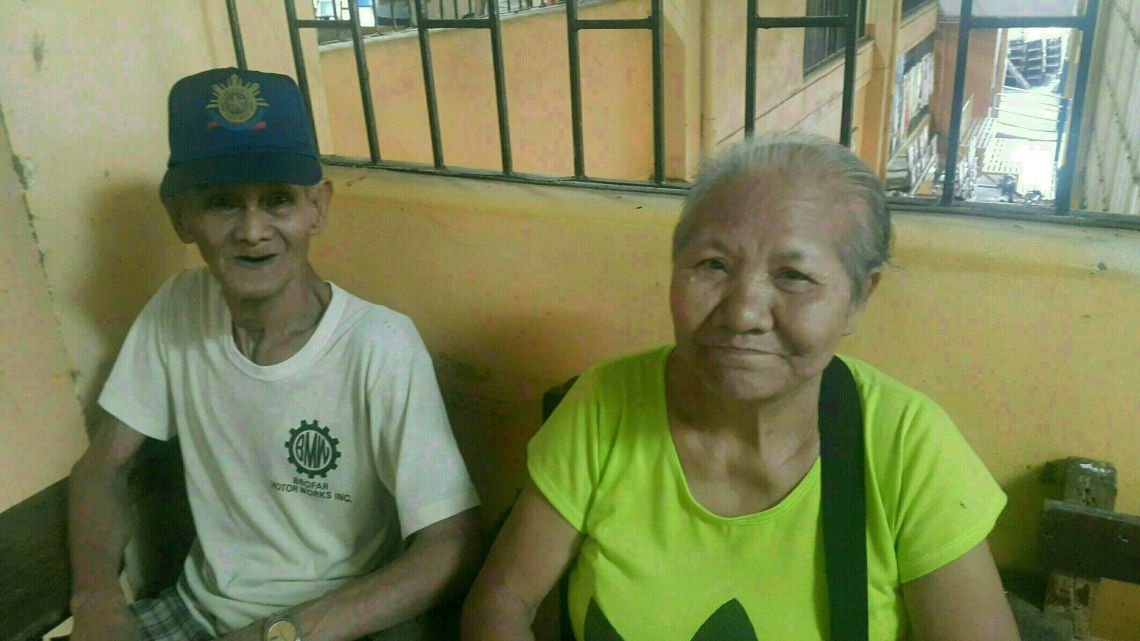
Senior citizens Felipe and Maria Tabaranza had to climb up to the second floor of Batasan Hills National High School in Quezon City despite an available EAPP because they were asked by a volunteer if they were willing to vote upstairs. (Photo by Klaire Ting)
There were other issues.
“Even in an EAPP, the lines are long because there are so many senior citizens who availed of it plus the PWDs, and they had to wait for ballots to be fetched from the different precincts and then brought to them,” she explained.
“So the waiting time for them is still long so it’s not ‘express’ as they expected it to be.”
Beyond that, there are concerns over accessibility that have to do with the design of polling precincts that are not easy to address, Arabe said.
“For instance, the school has to be structurally designed also to accommodate the PWD. Okay you have that APP or EAPP, but the entrance to the school is not PWD friendly. What if one has a wheelchair? What if it is an electronic wheelchair?
These are some of the things that they want the Comelec to address, she added.
Election watchdog Legal Network for Truthful Elections (LENTE) acknowledged the difficulties and challenges in the use of EAPPs but it lauded Comelec’s commitment to promote inclusiveness, which is “one of the elements of genuine elections.”
“Though this is not the first time the Philippines is seeing an EAPP, this is the first time that Comelec was purposive in setting up emergency accessible polling places in areas where the voting centers are in multi-story buildings,” LENTE executive director Rona Ann Caritos said.
But she noted the lack of information dissemination on EAPPs among voters and election staff, time constraints, lack of support staff and election paraphernalia, citing the situation in one EAPP where voters had to share one marker, as hurdles
Comelec’s Arabe says one reason why PWDs or senior citizens do not avail themselves of the EAPPs is they don’t want to be separated from their families.
“They want to vote with their families so they have a companion. Also, voting in an EAPP could mean spending double the usual voting time. For instance, one would accompany a grandfather, then this companion would have to vote in his or her own voting precinct,” she said.
But they (PWDs, etc) should be encouraged to use the EAPP. “Because if after a study would later reveal that very few are availing of the facility, it might be scrapped,” she said. — Klaire Ting, Kim Muana, VJ Bacungan, Ivel Santos, Feona Imperial, Chi Liquicia
